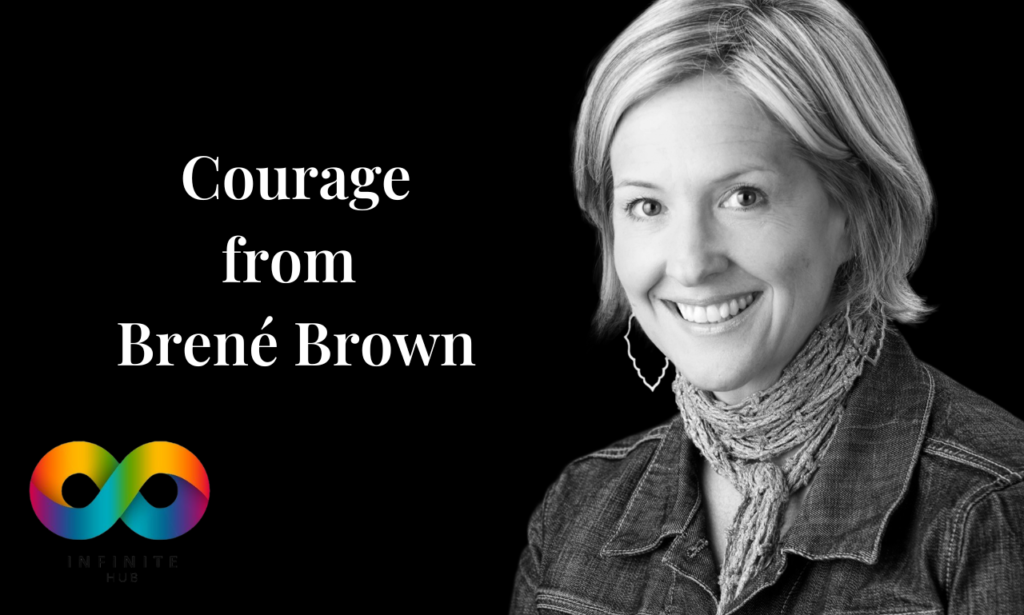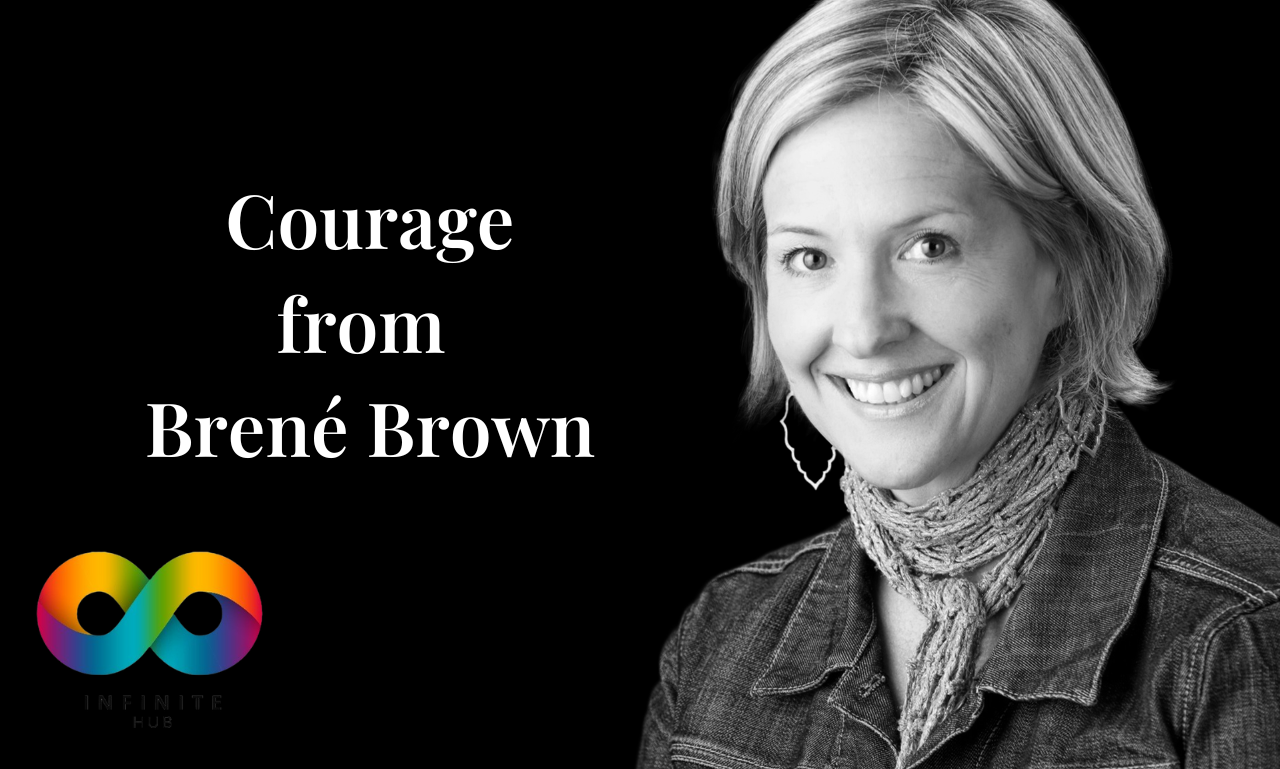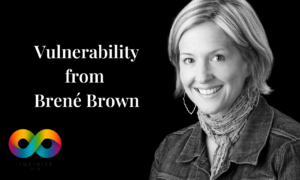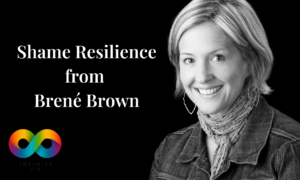
Outline
| Heading | Subtopics |
|---|---|
| Introduction to Brené Brown and Her Work | Brené Brown’s background, Key themes in her work, Impact on society |
| Understanding Courage | Definition of courage, Historical perspectives, Modern interpretations |
| Brené Brown’s Definition of Courage | Vulnerability as courage, Everyday acts of courage, Research findings |
| The Role of Vulnerability in Courage | Misconceptions about vulnerability, Benefits of vulnerability, Personal anecdotes from Brown |
| Building Resilience Through Courage | Connection between courage and resilience, Techniques for building resilience, Stories of resilient individuals |
| Wholehearted Living | Concept of wholehearted living, Brown’s guideposts for wholehearted living, Practical steps to achieve it |
| Shame and Empathy | How shame affects courage, Strategies to combat shame, Importance of empathy in fostering courage |
| The Power of Authenticity | Authenticity in Brown’s work, Challenges of living authentically, Benefits of authenticity |
| Courage in Relationships | Importance of courage in personal relationships, Examples from Brown’s research, Tips for cultivating courageous relationships |
| Courage in Leadership | Characteristics of courageous leaders, Brown’s advice for leaders, Case studies of courageous leadership |
| Cultivating Courage in Daily Life | Small daily acts of courage, Overcoming fear, Encouraging courage in others |
| The Impact of Fear on Courage | Understanding fear, Strategies to manage fear, Stories of overcoming fear |
| Practical Tools and Techniques | Journaling, Mindfulness, Community support |
| Courage and Creativity | Connection between courage and creativity, Encouraging creative courage, Examples from various fields |
| Stories of Courage from Brown’s Research | Inspiring stories, Lessons learned, Applications to daily life |
| The Courage to Be Imperfect | Embracing imperfection, Overcoming perfectionism, Benefits of imperfection |
| Empathy and Compassion | Role of empathy in courage, Developing compassion, Impact on personal and professional life |
| The Importance of Self-Compassion | Definition of self-compassion, Techniques to practice it, Brown’s insights |
| Emotional Exposure and Courage | Understanding emotional exposure, Handling emotional vulnerability, Personal growth through emotional exposure |
| Setting Boundaries with Courage | Importance of boundaries, How to set healthy boundaries, Overcoming challenges in setting boundaries |
| Courage and Connection | Building connections through courage, Benefits of connected living, Brown’s findings on human connection |
| Overcoming Adversity with Courage | Stories of overcoming adversity, Techniques to build courage in tough times, Lessons from Brown’s research |
| Courage in Professional Life | Importance of courage in the workplace, Tips for fostering a courageous work environment, Examples of professional courage |
| The Role of Gratitude in Courage | Connection between gratitude and courage, Practicing gratitude, Brown’s insights on gratitude |
| Cultivating a Growth Mindset | Growth mindset and courage, Strategies to develop a growth mindset, Benefits of a growth mindset |
| Courage and Mental Health | Impact of courage on mental health, Strategies to maintain mental health, Brown’s research on mental health |
| Community and Collective Courage | Importance of community, Building collective courage, Examples from history and current events |
| The Journey to Self-Discovery | Role of courage in self-discovery, Techniques to explore self, Brown’s advice on self-discovery |
| Courage in Facing Uncertainty | Managing uncertainty, Building courage to face the unknown, Brown’s perspectives on uncertainty |
| Conclusion | Recap of key points, Final thoughts, Encouragement to cultivate courage |
Introduction to Brené Brown and Her Work
Brené Brown, a research professor at the University of Houston, has spent over two decades studying courage, vulnerability, shame, and empathy. Her groundbreaking work has led to multiple best-selling books and TED talks, making her a prominent figure in the field of personal development and psychology. Brown’s unique approach combines rigorous research with personal storytelling, making her insights both accessible and impactful. Her work emphasizes the importance of embracing vulnerability to live a more courageous and authentic life.
Understanding Courage
Courage, often celebrated in historical and modern contexts, is the ability to confront fear, pain, danger, uncertainty, or intimidation. Historically, courage was linked to battlefield heroism and grand gestures, but modern interpretations expand this definition to include everyday acts of bravery. Today, courage encompasses the strength to be vulnerable, to face personal and professional challenges head-on, and to remain true to oneself in the face of adversity.
Brené Brown’s Definition of Courage
Brené Brown redefines courage through the lens of vulnerability. She asserts that true courage involves the willingness to be vulnerable and to embrace uncertainty and emotional risk. This perspective shifts the focus from heroic acts to the everyday bravery required to be open, honest, and authentic. Brown’s extensive research highlights that vulnerability is not a sign of weakness but a fundamental aspect of courage that fosters deeper connections and personal growth.
The Role of Vulnerability in Courage
Vulnerability is often misunderstood as weakness. However, Brown’s research reveals that vulnerability is the birthplace of courage, creativity, and innovation. By allowing ourselves to be seen and heard, despite the fear of judgment, we cultivate genuine connections and resilience. Brown’s personal anecdotes and research findings underscore the transformative power of embracing vulnerability in our lives.
Building Resilience Through Courage
Courage and resilience are deeply interconnected. Resilience involves the capacity to recover from setbacks, and courage provides the strength to face these challenges. Techniques for building resilience include practicing self-compassion, maintaining a supportive network, and adopting a growth mindset. Stories of individuals who have demonstrated resilience highlight the importance of courage in overcoming adversity.
Wholehearted Living
Wholehearted living, a concept central to Brown’s work, involves engaging with the world from a place of worthiness. It requires letting go of the need for perfection and embracing our imperfections. Brown outlines guideposts for wholehearted living, such as cultivating authenticity, self-compassion, and gratitude. Practical steps to achieve wholehearted living include setting boundaries, practicing mindfulness, and nurturing meaningful connections.
Shame and Empathy
Shame is a powerful emotion that can hinder courage. Brown emphasizes that empathy is a key antidote to shame. By understanding and sharing in others’ feelings, we create a supportive environment that encourages courage. Strategies to combat shame include practicing self-compassion, seeking connection, and speaking openly about our experiences.
The Power of Authenticity
Authenticity is a cornerstone of Brown’s teachings. Living authentically means embracing our true selves, despite the fear of judgment or rejection. Challenges in living authentically include societal pressures and internal doubts. However, the benefits—such as deeper connections and greater personal fulfillment—far outweigh these challenges. Brown’s work provides practical advice on how to cultivate authenticity in our daily lives.
Courage in Relationships
Courage plays a crucial role in building and maintaining healthy relationships. This involves being open, honest, and vulnerable with our partners, friends, and family. Brown’s research offers numerous examples of how courageous acts can strengthen relationships. Tips for cultivating courageous relationships include active listening, expressing gratitude, and setting boundaries.
Courage in Leadership
Courageous leadership involves making bold decisions, admitting mistakes, and fostering an environment where vulnerability is accepted. Characteristics of courageous leaders include empathy, resilience, and integrity. Brown’s advice for leaders includes embracing vulnerability, encouraging open communication, and leading by example. Case studies of successful leaders demonstrate the impact of courage in leadership.
Cultivating Courage in Daily Life
Everyday acts of courage can significantly impact our lives. These acts include speaking up for oneself, trying new things, and facing fears. Overcoming fear is a critical component of cultivating courage. Encouraging courage in others involves providing support, offering encouragement, and leading by example. By integrating small acts of courage into our daily routines, we can build a more courageous and fulfilling life.
The Impact of Fear on Courage
Fear is a natural response to perceived threats, but it can also hinder our ability to act courageously. Understanding the nature of fear and developing strategies to manage it are essential for cultivating courage. Techniques such as mindfulness, positive self-talk, and gradual exposure to fears can help us overcome them. Stories of individuals who have faced and conquered their fears provide inspiration and practical insights.
Practical Tools and Techniques
There are several practical tools and techniques for building courage. Journaling can help clarify thoughts and emotions, while mindfulness practices promote present-moment awareness. Community support, through friends, family, or support groups, provides encouragement and accountability. By incorporating these tools into our daily routines, we can strengthen our capacity for courage.
Courage and Creativity
Courage and creativity are closely linked. Taking creative risks requires the courage to embrace uncertainty and potential failure. Encouraging creative courage involves creating a supportive environment, practicing self-compassion, and celebrating successes and failures alike. Examples from various fields, such as art, science, and entrepreneurship, highlight the importance of courage in the creative process.
Stories of Courage from Brown’s Research
Brené Brown’s research is rich with inspiring stories of individuals who have demonstrated extraordinary courage. These stories illustrate the transformative power of courage and provide practical lessons that can be applied to our own lives. By reflecting on these examples, we can gain insights into how to cultivate courage and resilience in our daily lives.
The Courage to Be Imperfect
Embracing imperfection is a vital aspect of courage. Overcoming perfectionism involves accepting our flaws and recognizing that mistakes are opportunities for growth. The benefits of embracing imperfection include reduced stress, increased creativity, and stronger connections with others. Brown’s work offers practical advice on how to let go of the need for perfection and embrace our authentic selves.
Empathy and Compassion
Empathy and compassion are essential components of courage. By understanding and sharing in others’ experiences, we foster a supportive environment that encourages courage. Developing empathy and compassion involves active listening, open communication, and practicing kindness. The impact of these qualities on our personal and professional lives is profound, leading to deeper connections and greater resilience.
The Importance of Self-Compassion
Self-compassion is the practice of being kind and understanding towards ourselves. It involves recognizing our shared humanity and treating ourselves with the same kindness we would offer to others. Techniques for practicing self-compassion include mindfulness, self-kindness, and recognizing our common experiences. Brown’s insights highlight the importance of self-compassion in cultivating courage and resilience.
Emotional Exposure and Courage
Emotional exposure involves being open and honest about our feelings, even when it feels uncomfortable. Handling emotional vulnerability requires courage and can lead to significant personal growth. Techniques for managing emotional exposure include mindfulness, journaling, and seeking support from trusted individuals. By embracing emotional exposure, we can foster deeper connections and personal development.
Setting Boundaries with Courage
Setting healthy boundaries is essential for maintaining well-being and fostering respectful relationships. Boundaries help protect our physical, emotional, and mental health. Overcoming challenges in setting boundaries involves recognizing our needs, communicating clearly, and standing firm in our decisions. Brown’s work provides practical guidance on how to set and maintain healthy boundaries.
Courage and Connection
Courage plays a crucial role in building and maintaining meaningful connections. By being open and vulnerable, we can form deeper, more authentic relationships. Brown’s findings on human connection emphasize the importance of courage in fostering a sense of belonging and community. Practical steps to build connections through courage include active listening, sharing personal stories, and practicing empathy.
Overcoming Adversity with Courage
Facing adversity requires significant courage and resilience. Stories of individuals who have overcome adversity illustrate the power of courage in navigating difficult times. Techniques to build courage in tough times include maintaining a positive mindset, seeking support, and practicing self-care. Lessons from Brown’s research highlight the importance of courage in overcoming life’s challenges.
Courage in Professional Life
Courage is essential in the workplace for fostering innovation, building trust, and achieving success. Tips for fostering a courageous work environment include encouraging open communication, supporting risk-taking, and recognizing employees’ efforts. Examples of professional courage include standing up for one’s beliefs, taking on challenging projects, and leading by example.
The Role of Gratitude in Courage
Gratitude can significantly enhance our capacity for courage. Practicing gratitude involves recognizing and appreciating the positive aspects of our lives. Brown’s insights on gratitude highlight its connection to resilience and well-being. Techniques for practicing gratitude include keeping a gratitude journal, expressing appreciation to others, and reflecting on positive experiences.
Cultivating a Growth Mindset
A growth mindset, the belief that abilities and intelligence can be developed through effort and perseverance, is closely linked to courage. Strategies to develop a growth mindset include embracing challenges, learning from feedback, and maintaining a positive attitude. The benefits of a growth mindset include increased resilience, motivation, and a greater willingness to take risks.
Courage and Mental Health
Courage has a profound impact on mental health. By facing fears and embracing vulnerability, we can improve our emotional well-being and resilience. Strategies to maintain mental health include practicing mindfulness, seeking support, and setting boundaries. Brown’s research on mental health emphasizes the importance of courage in achieving a balanced and fulfilling life.
Community and Collective Courage
Community and collective courage involve coming together to face challenges and support one another. Building collective courage requires fostering a sense of belonging, encouraging open communication, and celebrating collective successes. Examples from history and current events demonstrate the power of collective courage in achieving social change and overcoming adversity.
The Journey to Self-Discovery
Self-discovery is a journey that requires courage and vulnerability. Techniques to explore self include journaling, mindfulness, and seeking new experiences. Brown’s advice on self-discovery emphasizes the importance of embracing our authentic selves and being open to growth and change.
Courage in Facing Uncertainty
Facing uncertainty requires significant courage. Strategies to manage uncertainty include maintaining a positive mindset, practicing mindfulness, and seeking support from others. Brown’s perspectives on uncertainty highlight the importance of embracing the unknown and remaining open to new possibilities.
Conclusion
Courage, as explored through the lens of Brené Brown’s research, is a multifaceted quality that encompasses vulnerability, resilience, and authenticity. By embracing vulnerability and practicing everyday acts of courage, we can lead more fulfilling and authentic lives. Brown’s insights provide a roadmap for cultivating courage in various aspects of our lives, from personal relationships to professional endeavors. As we strive to live courageously, we not only improve our own well-being but also inspire others to do the same.
FAQs
What is Brené Brown’s definition of courage? Brené Brown defines courage as the willingness to be vulnerable, to embrace uncertainty and emotional risk, and to show up authentically in our lives.
How does vulnerability relate to courage? Vulnerability is a key component of courage. It involves being open and honest about our feelings and experiences, which requires significant bravery.
What are some practical ways to cultivate courage? Practical ways to cultivate courage include practicing self-compassion, setting healthy boundaries, embracing vulnerability, and seeking support from a community.
How can I build resilience through courage? Building resilience through courage involves facing challenges head-on, maintaining a positive mindset, seeking support, and practicing self-care.
What role does empathy play in fostering courage? Empathy helps combat shame and creates a supportive environment where individuals feel safe to be vulnerable and courageous.
How can I encourage courage in others? Encouraging courage in others involves providing support, offering encouragement, leading by example, and creating a safe space for vulnerability.



